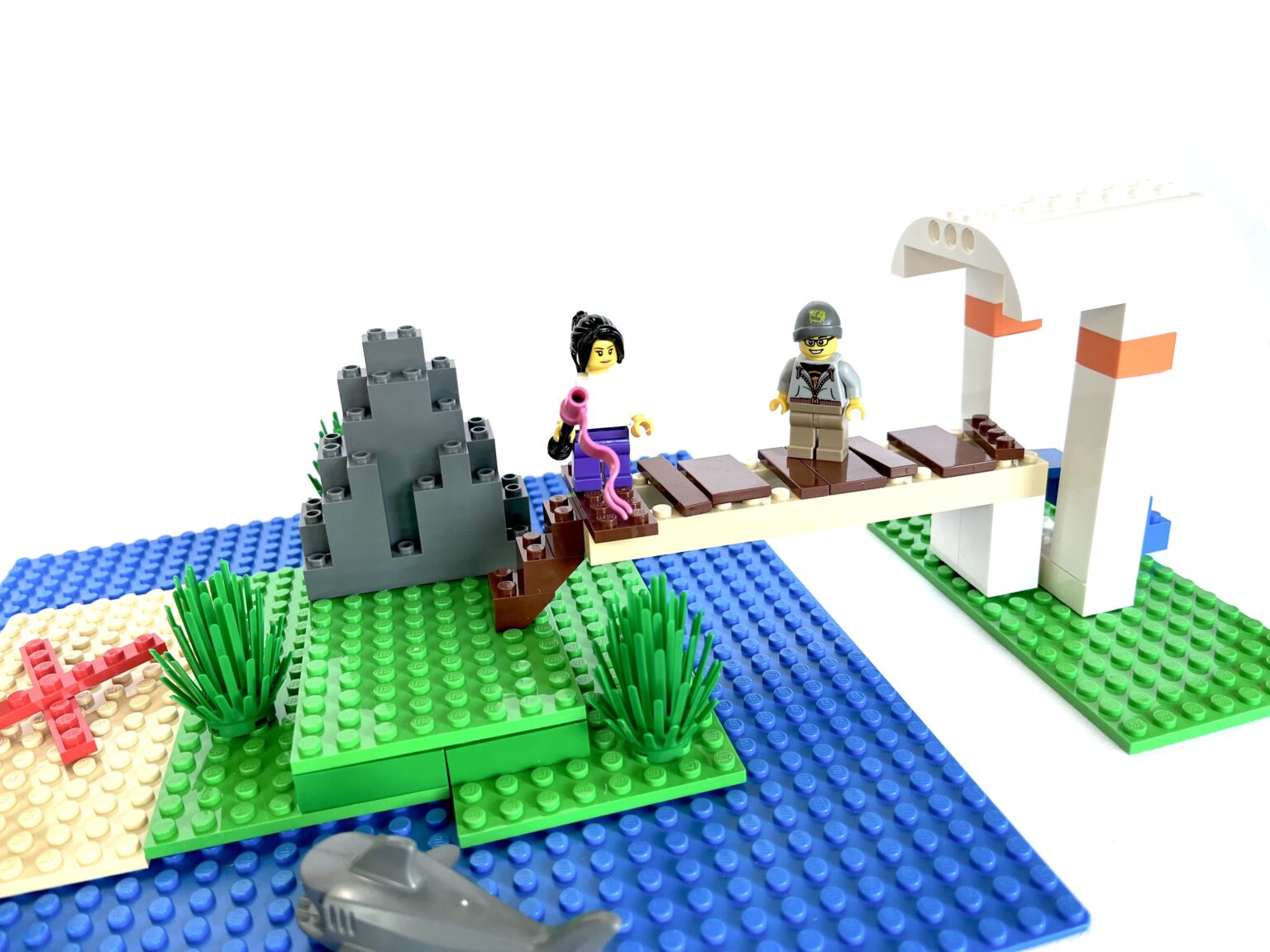Parallel – Building bridges and telling stories
We each build a bridge and tell a story about it. The aim of the activity is to create a shared play universe through our bridges.

Procedure
Framework
Suggestion for introduction
We create a motivating framework for the children.
For example, we can say: “Today, we build bridges. We decide ourselves how they look and where they should be placed. It is not about building the longest bridge but rather your own bridge. Which types of bridges do you think we will build and what happens around and on them? Who uses the bridges?
We practice building together and we try using our former experiences to reflect upon the activity together. Maybe we learn something new about each other today, like how we can share a good story.”
Time
The activity can be adapted to the framework of one lesson and varied according to the time available and the children’s prerequisites.
Materials
We need to use materials that are suitable for building bridges. We can choose one type of material the children like, or we can mix materials, for example, Lego, Kapla, Bakoba and so on.
During the activity
During the play session, the children encounter challenges and successes, where we can stop and help spot what is difficult or what is going well. We can do this in several ways:
Reflection routines
When we get the opportunity to reflect together with the children on what challenges or discoveries arise along the way, we can use one or more reflection routines. It could be, for example, a learning metaphor with a social strategy that we practice, an emoji that describes the feeling we have right now, or a rating of how well we think the building is going. In this way, a reflection routine can help to show and put into words the experiences that the children have during the play session.
Facilitating questions
We can ask facilitating questions to the children along the way, as they naturally arise in the building process. In this way, we facilitate the play session so that we continue the play and at the same time learn something from it. For example:
- I see that you have stopped building. I wonder how we can continue from here?
- I see that you have encountered a challenge. Should we try to solve it together?
- Try to notice what you are doing right now. Do you think this is a collaborative strategy?
Show and Tell
Finally, in the play session, we give a Show and Tell of our construction, so that we have the opportunity to share our experiences, reflections, and feelings about the construction process.
First, we talk about our model and the process of building it. During the Show and Tell, we can use reflection routines and reflective questions to support the discoveries that have been made. For example:
- What went well?
- What was difficult?
- Is there anything that you want to do differently the next time we are building bridges?